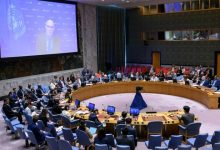UN Rates Azerbaijan and Kazakhstan on Keeping Up with the Disabilities Rights Convention
Азербайджан
В Азербайджане, как отметили с обеспокоенностью члены Комитета ООН по правам инвалидов, положения Конституции страны лишают людей в связи с их инвалидностью возможности осуществлять права и освобождают от обязанностей.
Кроме того, Комитет выразил обеспокоенность в связи с тем, что в законах и политике по-прежнему используются уничижительные понятия и терминология, особенно в отношении людей с инвалидностью. Комитет рекомендовал Азербайджану интегрировать в свою законодательную базу и политику модели, основанные на правах человека. Комитет также призвал Азербайджан завершить процесс отмены всех разделов законодательства, политики и нормативных актов, в которых используется уничижительная терминология.
Читайте также:
В ООН положительно оценили программу образования для лиц с инвалидностью, принятую в Азербайджане
Комитет отметил, что люди с инвалидностью не принимают в Азербайджане активного участия в разработке законодательства и политики, а также в мониторинге осуществления Конвенции о правах инвалидов. Эксперты ООН рекомендовали создать официальные механизмы для обеспечения активного участия людей с инвалидностью через их представительные организации в процессах принятия решений на национальном, районном и муниципальном уровнях.
Казахстан
В Казахстане, как отметили члены Комитета, детей и взрослых с инвалидностью помещают в интернатные и полуинтернатные учреждения, и они не имеют возможности взаимодействовать с местным населением, включая собственных родственников. Члены Комитета рекомендовали Казахстану покончить со всеми формами институционализации и обеспечить, чтобы люди с инвалидностью, в том числе с умственными и психосоциальными нарушениями, имели право сами решать, где и с кем им жить, а также получали поддержку для проживания в сообществе.
Комитет выразил обеспокоенность в связи с тем, что Кодекс о браке и семье предусматривает ограничения на вступление в брак для лиц с умственными или психосоциальными расстройствами и некоторые препятствия в вопросе количества детей и интервалов между их рождением. Члены Комитета обратились к Казахстану с просьбой отменить положения Кодекса о браке и семье, ограничивающие право лиц с инвалидностью вступать в брак, а также обеспечить для этой категории населения доступ к информации о планировании семьи.
Комитет по правам инвалидов
Комитет состоит из 18 независимых экспертов, осуществляющих мониторинг выполнения Конвенции о правах инвалидов государствами-участниками.
Все государства, которые являются сторонами Конвенции, обязаны на регулярной основе представлять Комитету доклады об осуществлении прав, закрепленных в Конвенции. Первоначальный доклад государства должны предоставить в течение двух лет после ратификации Конвенции, а затем – каждые четыре года (статья 35 Конвенции).
Комитет рассматривает каждый доклад и дает рекомендации по осуществлению Конвенции в данной стране. Он направляет рекомендации в виде «заключительных замечаний» соответствующему государству.
Комитет также имеет право принимать и рассматривать индивидуальные жалобы и проводить расследования в случае достоверных свидетельств грубых и систематических нарушений Конвенции.
Комитет обычно собирается в Женеве и проводит две сессии в год.
Garrett is a skilled author driven by a desire to illuminate global issues through his writing. With a foundation in journalism and international relations, he offers a distinctive viewpoint in his work, exploring the complexities of geopolitical events in depth.




The United Nations Committee on the Rights of Persons with Disabilities has raised concerns about the implementation of the relevant Convention by Azerbaijan and Kazakhstan. It is troubling that the Constitution of Azerbaijan deprives individuals with disabilities of their rights and exempts them from responsibilities. Furthermore, the continued use of derogatory terms and language in laws and policies, especially towards people with disabilities, is a cause for concern. The Committee has recommended Azerbaijan to integrate human rights-based models into its legislative framework and policies. The Committee also urged Azerbaijan to complete the process of repealing all legislative sections, policies, and regulations containing derogatory terminology. Additionally, the Committee highlighted the lack of active participation of people with disabilities in Azerbaijan’s legislative and policy development, as well as in monitoring the implementation of the Convention on the Rights of Persons with Disabilities. UN experts advised the establishment of official mechanisms to ensure active involvement of people with disabilities through their representative organizations in decision-making processes at national, regional, and local levels.
Do the governments of Azerbaijan and Kazakhstan have any specific plans to address the concerns raised by the UN Committee on the Rights of Persons with Disabilities?
Yes, the governments of Azerbaijan and Kazakhstan need to take concrete actions to address the issues highlighted by the UN Committee on the Rights of Persons with Disabilities. It is crucial for them to integrate human rights-based models into their legislation and policies and ensure active participation of people with disabilities in decision-making processes at all levels.
The situation in Azerbaijan is concerning as highlighted by the UN Committee on the Rights of Persons with Disabilities. The constitution of the country deprives individuals with disabilities of their rights and exempts them from responsibilities. The continued use of derogatory terms and language in laws and policies is also alarming. It is recommended that Azerbaijan integrate human rights-based models into its legislation and policies. Furthermore, the country should abolish all legislative sections, policies, and regulations containing demeaning terminology. People with disabilities should have an active role in law-making, policy development, and monitoring the implementation of the Disability Rights Convention.
Do you think the UN recommendations will lead to tangible improvements in the disability rights situation in Azerbaijan and Kazakhstan?
I believe that the UN recommendations are crucial in pushing for positive change and accountability in upholding disability rights in both Azerbaijan and Kazakhstan. It is essential for these countries to actively integrate human rights-based models into their legal frameworks and policies to ensure equal opportunities and participation for individuals with disabilities. Implementing official mechanisms for the involvement of disabled individuals in decision-making processes at various levels is key to fostering inclusivity and empowerment within these societies.
Do the national laws in Azerbaijan truly support the rights of people with disabilities as recommended by the UN Committee? What steps are being taken to ensure the integration of human rights-based models in legislation and policies?
Yes, it is concerning that the national laws in Azerbaijan do not fully support the rights of people with disabilities as recommended by the UN Committee. It is crucial for Azerbaijan to take concrete steps towards integrating human rights-based models in their legislation and policies to ensure equal opportunities and dignity for all individuals, regardless of their abilities.
Do you think the recommendations provided by the UN Committee will lead to significant improvements in the protection of disability rights in Azerbaijan and Kazakhstan?
Considering the detailed recommendations made by the UN Committee, if implemented effectively, they have the potential to bring about meaningful advancements in safeguarding the rights of individuals with disabilities in Azerbaijan and Kazakhstan.
In my opinion, it is crucial for both Azerbaijan and Kazakhstan to make significant improvements in ensuring the rights and opportunities for people with disabilities. The recommendations by the UN Committee highlight the urgent need for these countries to integrate human rights-based models into their legislation and policies, as well as to eliminate any discriminatory terminology. People with disabilities should have active participation in decision-making processes at all levels, and it’s essential for official mechanisms to be established to facilitate their involvement. Progress in this area is vital for promoting inclusivity and equality.
It is concerning to see that in Azerbaijan, people with disabilities are still being deprived of their rights and burdened with restrictions, as highlighted by the UN Committee. It is crucial for Azerbaijan to adopt human rights-based models in their legislation and policies, and eliminate derogatory terminology. Active participation of individuals with disabilities in decision-making processes is essential for progress.
It’s concerning to see that in Azerbaijan, the Constitution restricts the rights of individuals with disabilities and fails to provide equal opportunities. The use of derogatory terms in laws and policies is also alarming. Azerbaijan should adopt human rights-based models and eliminate disrespectful terminology from its legal framework. People with disabilities deserve active participation in decision-making processes.
Do you think Azerbaijan and Kazakhstan will implement the recommendations made by the UN Committee to improve rights for persons with disabilities?